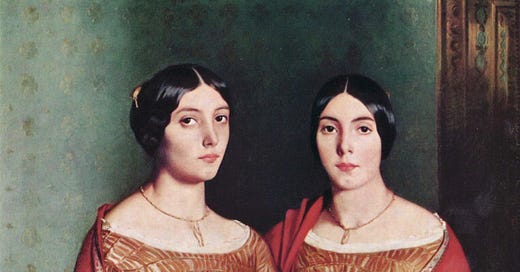Of the three great sex comedies that Mozart wrote with librettist Lorenzo da Ponte, only one of them still comes with apologies. The Marriage of Figaro is easy to love without caveats — the good people win in the end, and the resourceful servants get to stick it to the entitled upper classes. Don Giovanni is a little trickier, opening as it does with an attempted rape and closing the first act with another, but at least the perpetrator goes to hell at the end. But Così fan tutte, the third and least successful, has always presented a problem. Everyone behaves badly, and no one wins. And the lesson at the end? Well, that’s just how things are. It’s folly to expect any different.
The plot of Così fan tutte — which literally translates to they all do that, using the feminine tutte to indicate women specifically — is silly but simple. Two men decide to test the fidelity of their girlfriends in an elaborate scheme: they’ll appear in disguise and try to seduce each other’s women. They’re ultimately successful, because that’s what a plot like this demands. Then the men come back as their original selves to catch them in the act, and the women are duly chastened for their infidelity. All is forgiven, but the opera famously neglects to clarify whether the women return to their original partners or if they prefer the swapped versions.
A while ago, Against the Grain Theatre did a production of Così where all the action took place on a reality TV show. This seems to me correct: the kinds of ridiculous situations that we reject as unrealistic in opera, we’re happy to accept when explicitly contrived for our entertainment.
The Romantic composers and thinkers who worshipped Mozart hated Così. They hated it because it was about people behaving badly — behaving badly sexually — without any deeper moral or social lesson to justify it. Goethe lamented the inferiority of the subject matter. Beethoven and Wagner both thought the story beneath the dignity of the composer. There were some attempts in the 19th century to discard the libretto altogether and set Mozart’s music to a more morally correct plot; unsurprisingly none of these have survived. Only in the 20th century was Così added to the operatic standard repertoire. In the last decades, the moral objections have taken on a different tone: the opera’s conclusion that women will all behave badly in the right circumstances — a conclusion that’s right there in the title — strikes us as unforgivably misogynistic.
Most opera houses would have happily relegated Così to the status of rarely-performed curiosity were it not for the fact that it contains some of the most beautiful music Mozart ever wrote. In particular, the Act I ensemble Soave sia il vento, which I would place as one of the most purely pleasurable operatic numbers in existence:
Not as beautiful but definitely charming is Act II’s “Prenderò quel brunettino” (literally: I’ll take the little brown-haired one), a pean to the pleasures of flirting.
This latter made an appearance in a movie I watched recently, Chantal Akerman’s La Captive, an adaptation of Proust’s The Prisoner (which I wrote about here). In that context, the duet stands in for Ariane/Albertine’s bid for freedom from Simon/Marcel’s suffocating constraints.
There are other ways in which Così is fundamentally a silly opera. For one, like many dramas from its era, it relies on the idea that it’s possible to convincingly disguise oneself from the person one loves best. The women onstage are fooled easily by mustaches and silly outfits; this requires some suspension of disbelief.
Is Così fan tutte misogynistic? Sure, but certainly far less than The Magic Flute, which is still performed dutifully every year in productions intended for young children. Part of me wonders if the modern objections to Così are really much different from the old objections. One never has to go far to find claims that the downfall of society will be brought about by women having sex with men they shouldn’t.



